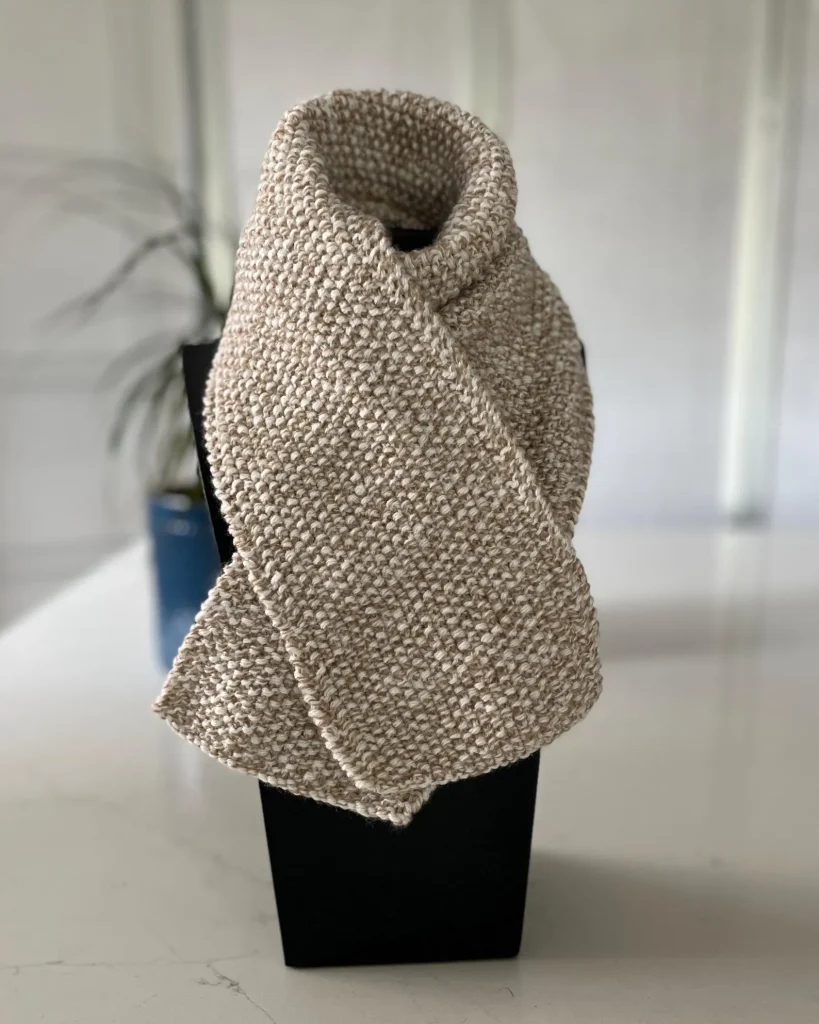News
The Growing Demand for Custom Handmade Knitted Scarves
In a world dominated by mass-produced fashion, consumers are increasingly shifting towards handmade, custom-crafted products that offer uniqueness, quality, and personal connection. This trend is particularly evident in the growing demand for custom handmade knitted scarves, as buyers seek accessories that stand out, tell a story, and reflect their individuality. More than just a seasonal necessity, these scarves represent a movement towards mindful, meaningful consumption in fashion.
1. The Shift Towards Unique and Personalized Scarves
One of the main reasons for the rise in handmade knitted scarves is the desire for uniqueness and personalization. Unlike factory-made scarves that are mass-produced in identical patterns, a handmade scarf offers customization in design, color, and material choices. Consumers appreciate being part of the creative process, choosing the exact shade, length, or pattern that best matches their style.
2. Quality Over Quantity
Consumers today prioritize quality craftsmanship over mass-market efficiency. Handmade knitted scarves are carefully crafted with attention to detail, using high-quality yarns that ensure warmth, durability, and comfort. Unlike machine-knitted scarves, handmade pieces showcase the artisan’s skill, with each stitch representing hours of meticulous work. This focus on quality results in scarves that are not only visually appealing but long-lasting.
3. The Ethical and Sustainable Appeal
More people are making conscious purchasing decisions, favoring handmade products because of their ethical and eco-friendly production. Unlike fast fashion, which contributes to waste and environmental damage, handmade knitted scarves are often crafted from sustainable, responsibly sourced materials. Many artisans choose natural, biodegradable fibers, reducing synthetic waste. Additionally, supporting handmade items means backing fair wages and small businesses, ensuring artisans are fairly compensated for their work.
4. The Revival of Artisan Craftsmanship
The demand for handmade scarves is part of a larger artisan revival, where traditional skills are being reappreciated in modern fashion. The rise of online marketplaces and social media has allowed skilled knitters to showcase their work to a global audience, making it easier for consumers to connect directly with makers. This resurgence not only supports artisans but also preserves traditional knitting techniques that might otherwise fade away in a world of mass production.
5. Customization: The Future of Handmade Fashion
Personalization is at the core of the handmade knitted scarf trend. Consumers love having the option to customize details, from selecting specific yarn textures to requesting personalized embroidery or hand-knit initials. This level of customization adds emotional value, making each scarf a truly unique and meaningful accessory. As demand for personalization grows, artisans continue to offer innovative, made-to-order designs, ensuring each piece feels as special as its wearer.
6. Supporting Local and Global Artisans
Buying a handmade knitted scarf is not just about owning a unique item—it’s about supporting skilled artisans. Many consumers prefer to purchase from local makers or small businesses, knowing their money goes directly to the creator. Additionally, many handmade scarves are produced by artisan communities worldwide, helping to sustain traditional craftsmanship and provide fair employment opportunities in developing regions.
7. The Role of Technology in the Handmade Market
While hand-knitting is an age-old craft, technology has played a key role in its resurgence. Online platforms like Etsy, Shopify, and Instagram allow artisans to sell their work globally, making custom knitted scarves accessible to a wider audience. Social media also enables knitters to showcase their process, share behind-the-scenes glimpses, and connect with customers on a personal level. This direct interaction strengthens the relationship between maker and buyer, reinforcing the authenticity and uniqueness of each handcrafted scarf.
8. Conclusion
The rising demand for custom handmade knitted scarves is more than just a passing fashion trend—it represents a fundamental shift in consumer values. As buyers seek authenticity, sustainability, and high-quality craftsmanship, handmade scarves continue to gain popularity. Artisans are meeting this demand with beautifully crafted, one-of-a-kind designs that reflect personal style while supporting ethical production.
As the future of fashion leans towards customization and craftsmanship, handmade knitted scarves take center stage, proving that slow, mindful fashion is here to stay.

